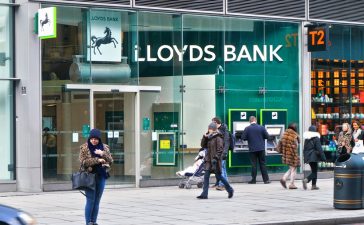There was a small rise of 230 mortgages in arrears compared to the previous quarter, with a total of 77,640 homeowner mortgages in arrears of 2.5% or more of the outstanding balance
Mortgage arrears remained “near to the historically low levels” in Q4 2020 as a direct result of payment deferrals and other tailored forbearance, according to the latest analysis from UK Finance.
From March 2020 – 31 March 2021, lenders offered payment deferrals of up to six months to customers and buy-to-let (BTL) landlords where Covid-19 had impacted their ability to meet their monthly mortgage payments, with nearly 2.9 million granted while the scheme was active.
There was a small rise of 230 mortgages in arrears compared to the previous quarter, with a total of 77,640 homeowner mortgages in arrears of 2.5% or more of the outstanding balance.
Within the total, there were 28,100 homeowner mortgages in early arrears (those between 2.5 and 5% of balance in arrears), a decline of 1% on the previous quarter.
Over the same period in 2020, the number of mortgages in early arrears rose modestly, which UK Finance says is largely due to early payment difficulties prior to payment deferrals being introduced. Since then, payment deferrals allowed borrowers who had found themselves in early arrears to pay these off and prevented additional borrowers from going into arrears.
This resulted in an overall drop in early homeowner arrears over the course of 2020, with the number of cases in the first quarter of 2021 remaining lower than the number of cases before the pandemic began.
Within the overall total, there were 27,280 homeowner mortgages with more significant arrears (representing 10% or more of the outstanding balance), a rise of 620 on the previous quarter. This figure has slowly risen since the first quarter of 2020 but from a low base.
UK Finance says these increases are largely driven by customers who had several missed payments before the pandemic. These borrowers may have made use of the full six months of payment deferrals and are most likely receiving or, in need of, the help available through lenders’ tailored forbearance support.
There were a total of 5,970 buy-to-let mortgages in arrears of 2.5% or more of the outstanding balance in the first quarter of 2021, a small rise of 130 on the previous quarter. The continued small rises in buy-to-let arrears from a low base are again due to the pandemic.
Only 190 homeowner mortgaged properties and 180 buy-to-let mortgaged properties were taken into possession in the first quarter of 2021. Although FCA guidance allowed firms to recommence litigation activity from November 2020, lenders voluntarily committed to pause possessions in line with the Government’s ‘winter truce’ from 11 December 2020 to 11 January 2021.
There were 40 more possession cases in Q1 2021 than the quarter before, where the customer requested the possession to go ahead or where the property was vacant. Possessions will remain low until government restrictions on Bailiff activity ends, and are then expected to rise due to the backlog of cases that did not occur in 2020; these cases will have been in train before the pandemic began.
Eric Leenders, managing director of personal finance at UK Finance, said: While there was a slight rise in total arrears in Q1 2021 compared to the historic low levels seen before the pandemic, the additional support from lenders has helped many mortgage customers stay out of arrears.
He said: With the economic impact of Covid-19 continuing to be felt, we anticipate there will be further increases in mortgage arrears during 2021. Any customer who is concerned about their finances should contact their lender early to discuss the options and tailored support available to them.






